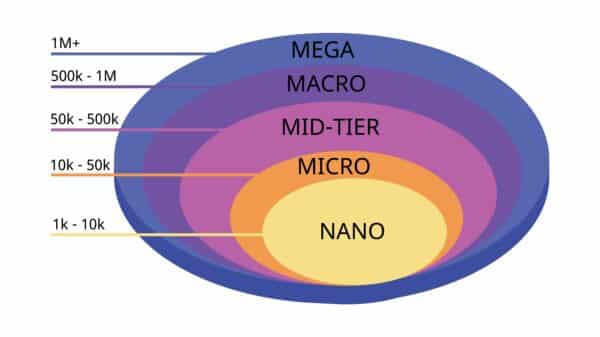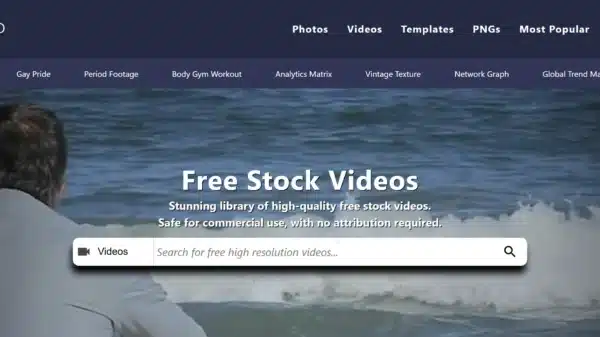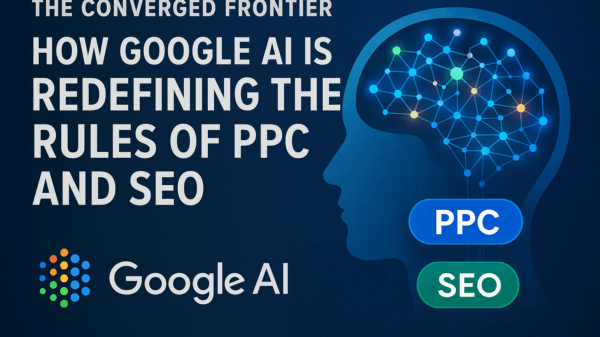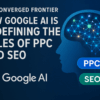Digital marketing is essential to building a successful brand that drives measurable results. However, with digital marketing strategies constantly evolving, it’s easy to feel overwhelmed by the array of options for reaching customers online. Many business owners find themselves asking the same question: Should they invest their marketing budget in PPC or SEO?
In this article, we’ll explore the key differences between SEO and PPC, weigh their advantages and drawbacks, and show you how to harness both for a high-visibility, profitable brand.
Why Are PPC and SEO Important?
In the modern marketing world, your business’s online presence is critical. A core element of that presence is driving traffic to your website. If your website isn’t visible to potential customers, it’s unlikely that you’ll generate the necessary traffic to be successful.
A key determinant of website traffic is where your site ranks on search engine results pages (SERPs). In other words, how high it appears on the results page. This is where both PPC (pay-per-click) and SEO (search engine optimization) come into play.
Understanding PPC and SEO
On a typical search engine results page, you’ll see paid ads displayed at the top, often marked as ‘sponsored’ or ‘ad.’ These represent PPC advertising. As you scroll down, you’ll encounter organic search results. These organic results are not paid for but achieve their rank by employing SEO techniques to influence the algorithm.
SEO involves creating quality content for your site, optimizing both the site and your Google business profile, and building high-value backlinks. Combining these strategies helps boost your rankings on SERPs, while also providing valuable information to potential customers.
Search engines use complex algorithms to rank pages based on various factors, some known and others not. SEO professionals use what is known about these algorithms to ensure content ranks well. One effective method is integrating keywords commonly searched by your target audience, like ‘best backpack’ or ‘Miami plumbing services,’ into engaging and informative content.
PPC, on the other hand, allows businesses to pay for ad placement against specific search terms. When someone clicks on your ad, the business pays a fee to the search engine, determined by the bid that secured the ad’s position. For example, a search for ‘best backpack’ may show several paid ads that direct users to online stores.
The Benefits and Drawbacks of SEO
Choosing between SEO and PPC can be tricky. To make an informed decision, it helps to dive deeper into the pros and cons of each. Let’s start with SEO. Its primary advantages include:
- Cost-effectiveness: SEO tends to be less expensive than PPC because it doesn’t depend on bidding for ad space.
- Long-term results: One major advantage of SEO is that you don’t need to continually spend on ads to maintain visibility. Once your content is optimized and your website is up and running, it can drive consistent traffic for a long time—especially if you continue to create high-quality, relevant content.
- Credibility and trust: SEO also enhances your brand’s credibility. Many internet users view organic search results as more trustworthy than paid ads, and when they click on your content, your brand gains a credibility boost.
- Improved website quality: Another benefit of SEO is that it encourages you to invest in long-term improvements to your website, ensuring it remains a valuable resource for users.
However, SEO does have its limitations:
- Delayed results: SEO can take months to produce noticeable results, particularly for highly competitive keywords. You may need to test different strategies before finding one that works.
- Technical expertise: A successful SEO campaign requires in-depth knowledge of search engines and their algorithms. While you can learn the basics yourself, implementing a comprehensive SEO strategy often requires hiring experienced professionals.
- Vulnerability to algorithm changes: Search engines frequently update their algorithms, which can disrupt even the most effective SEO strategies. Regular adjustments and refinements are necessary to maintain rankings, and major updates may require a complete overhaul.
The Benefits and Drawbacks of PPC
PPC advertising has grown increasingly popular for generating leads and directly targeting potential customers. Some of the key advantages of PPC include:
- Increased visibility: PPC ads are positioned at the top of SERPs, giving your business prime visibility and a higher chance of driving traffic and sales.
- Immediate results: Unlike SEO, PPC delivers results quickly. As soon as your campaign is live and you’ve outbid your competitors, your ad will appear prominently in search results, making it easier to test and refine your strategy.
- Control and scalability: PPC campaigns offer more control and are not as dependent on algorithm changes. You can scale them quickly by increasing your budget and running multiple ads simultaneously.
- Precise targeting: PPC enables you to tailor ads specifically to your audience by using personalized messaging that speaks to their location, interests, demographics, and online behavior. This helps improve your visibility with the right audiences.
However, PPC also has its disadvantages:
- Expense: PPC can be expensive, especially compared to SEO, as you pay for every click. Costs can quickly add up, particularly in competitive industries.
- High competition: In certain sectors, intense competition for specific keywords can drive up the cost of bidding. If you can’t keep up, your campaign might fail to deliver results.
- Limited lifespan: PPC ads stop driving traffic as soon as your budget runs out, and there’s no long-term benefit like you would see with SEO.
- Limited brand growth: PPC requires less investment in your website, which can sometimes harm brand credibility as customers may be skeptical of paid ads.
How to Combine PPC and SEO for Success
Given the distinct pros and cons of both SEO and PPC, choosing which strategy to prioritize can be challenging. Fortunately, by understanding the unique advantages each offers, you can create a balanced digital marketing strategy that utilizes both PPC and SEO effectively.
One practical way to do this is by using SEO as a long-term strategy for raising your brand’s profile and increasing organic traffic. This can be complemented by running targeted PPC campaigns during key moments, such as before major holidays, product launches, or seasonal promotions.
For smaller businesses with niche products or services, focusing on SEO to gradually establish authority and credibility may be a better approach than investing heavily in short-term PPC ads.
By leveraging the strengths of both SEO and PPC, you can build a comprehensive digital marketing strategy that maximizes your brand’s visibility and drives consistent, measurable results.












